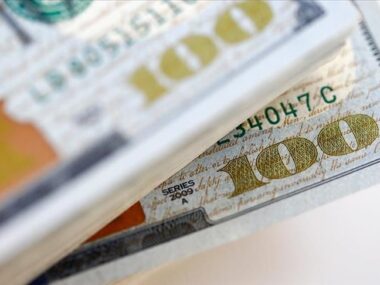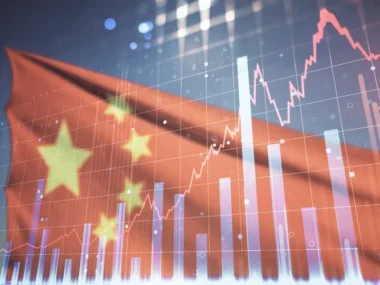US inflation rose more than expected last month, driven by higher egg and energy prices, increasing the cost of living for Americans.
Inflation reached 3% in January, the highest in six months, surpassing economists’ 2.9% forecast.
This increase follows the US central bank’s decision to keep interest rates unchanged, citing economic uncertainty.
The rise presents a challenge for President Donald Trump, who focused on curbing inflation during his campaign but has proposed policies like higher import tariffs, which economists warn could drive prices up. Ryan Sweet, chief US economist at Oxford Economics, suggested the report might pressure Trump to reconsider these tariff plans, which effectively raise taxes on imports.
“Tariffs can still be used for negotiations, but even a slight rise in consumer prices due to tariffs could be politically problematic for the Trump administration,” he noted.
Price increases last month were broad, affecting car insurance, airfare, medicine, and essentials.
Grocery prices rose 0.5%, up from 0.3% in December, with egg prices surging over 15% due to avian flu-related shortages—the largest monthly rise in nearly a decade, according to the Labor Department.
Meanwhile, clothing prices declined, while rents and housing-related costs increased 4.4% over the past year, marking the smallest annual rise since January 2022.

Core inflation, which excludes food and energy to better reflect underlying trends, rose 0.4% in January, the fastest pace since March.
“This is not a good number,” said Brian Coulton, chief economist at Fitch Ratings.
He pointed out that inflation remains unresolved even as new risks—such as tariff increases and labor supply constraints—emerge.
The Federal Reserve aggressively raised interest rates starting in 2022 to slow the economy and curb inflation. However, after beginning rate cuts in September to prevent excessive economic cooling, the central bank paused reductions in January due to persistent inflation above its 2% target. Federal Reserve Chairman Jerome Powell told Congress this week that the bank is in no rush to lower rates further.
Powell also noted uncertainty over how Trump’s proposed tariffs might influence the Fed’s decisions, as they could simultaneously slow economic growth and drive up prices.
On Wednesday, Trump urged the Fed to cut interest rates to align with his tariff policies.
However, some analysts, following the latest inflation report, now expect no rate cuts this year.
Wall Street stocks mostly declined, while yields on US government debt rose as investors anticipated prolonged high borrowing costs.
Meanwhile, former Federal Reserve Board member Randy Kroszner questioned whether price increases would be significant enough for Trump to reconsider tariffs.
“When Trump previously raised tariffs on steel and aluminum, the overall impact on prices was minimal,” Kroszner told BBC News.
He added that unless the situation escalates into a global trade war, the impact may remain limited, as trade accounts for a relatively small portion of the US economy.











